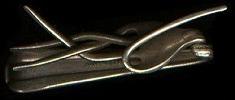A Bigger Bang
Labels:
Bigger Bang,
concert,
live,
rock,
Rolling Stones,
Satisfaction,
Start me up
In an attempt to close their seemingly neverending mega-tour A Bigger Bang, the Rolling Stones have just set feet in the Old Continent to rock with their fans again. For the last time? It may well be!
For those that ignore their origins, The Rolling Stones came into being in 1962 when former schoolmates Mick Jagger and Keith Richards met Brian Jones, who named the band after the title of the Muddy Waters song "Rollin' Stone". The original line-up included Mick Jagger (vocals), Brian Jones (guitar, harmonica, vocals), Keith Richards (guitar, vocals), Ian "Stu" Stewart (piano), Dick Taylor (bass) and various drummers such as Mick Avory (later of The Kinks) and Tony Chapman.
United by their shared interest in rhythm and blues music, the group rehearsed extensively, initially playing in public at the Marquee Club in London. The band rapidly gained a reputation for their frantic, highly energetic covers of the rhythm and blues songs of their idols. The performances were pivotal in introducing a generation of white British youth to rhythm and blues music, and helped to fuel the "British Invasion" of America. More importantly perhaps, while The Beatles were still suited, clean-cut boys with mop-top haircuts, The Stones cultivated the opposite image: decidedly unkempt, and posing for publicity photographs like a gang of surly yobs. This made many girls go crazy for their bad boy image, and soon made them a teen idol group.
On June 30, 1965, the Stones released the album "Out of Our Heads". The US version included the song "Satisfaction". Keith Richards apparently wrote the memorable introductory riff in his sleep. He had been recording riffs on a tape recorder and fell asleep; when he woke up, he almost erased the tape, but decided to listen to it again. He said it was, "two minutes of Satisfaction and forty seconds of me snoring".
Tragedy struck the Stones in 1969. Soon after forcing guitarist Brian Jones to leave the band, being replaced by the young, jazz-influenced guitarist Mick Taylor, he was found dead in the swimming pool of his Cotchford Farm home in Kent, following several episodes of alcohol and drug abuse. The period that followed was arguably one of the most prolific and successful for the band. If you wanted to sum up the Stones' best work in a nutshell, you can't go wrong with the period which began with 1968's Beggars Banquet, ran through Let It Bleed -the band's last UK number 1 single-, and then ended up with Exile in 1972. That period is arguably when the Stones were at the peak of their game.Which is interesting when you consider Mick Taylor was the guitarist on most, if not all of those records.
In the 70s, feeling that live performing was evolving, the Stones decided to move on. Rather than performing in small and medium-size venues to audiences of screaming girls, they were booked into huge baseball and football stadiums with crowd sizes to match. They blazed a trail for a multitude of stadium tours by the super-bands of the 1970s, which continues to this day.
The 1970s saw the Stones playing at the top of their game. Unencumbered by Jones and armed to the teeth with the astonishingly fluent blues playing of twenty-one-year-old Mick Taylor, the rhythm section could put its foot down. No other band was so lascive, syncopated, scholarly and original all at the same time. They were making, as the reactionary critic Albert Goldman was forced to admit, "mighty jungle music". Their producer, Jimmy Miller, called them 'the greatest white rhythm section I've ever seen' and you can hear this on their live recording Get Yer Ya Yas Out (1970), which has often been considered the greatest live rock and roll record ever.
Following their successful 'Bridges to Babylon tour', Q magazine named The Rolling Stones as one of the "50 Bands To See Before You Die". On May 10, 2005, The Stones announced plans for another world tour starting August 21 at Fenway Park in Boston. The A Bigger Bang Tour was expected to include dates throughout the United States and Canada before going to South America, Asia and Europe. Launching the tour at the Juilliard School in New York, Mick Jagger -now 63- told reporters that it would not necessarily be their last.

February 18, 2006, was a historic day for The Rolling Stones: They performed to the biggest audience of their career, a free concert on Copacabana Beach, Rio de Janeiro Brazil, where city authorities estimated attendance at 1,500,000. While the Guinness World Book of Records states the largest free concert ever was given in the same spot in 1994 by Rod Stewart, to 3.5 million people, that figure includes everyone who was on Copacabana Beach for fireworks and New Year Eve's celebrations, not just for that concert, so The Rolling Stones could hold the title of largest rock concert of all time.
After all these achievements, the huge demand to see the mythical band is absolutely justified. A Bigger Bang could well be the last chance to see The Rolling Stones perform live, and their fans know it. Tickets for most of their European concerts are already sold out, although honestly priced tickets can still be found. After all, The Rolling Stones may well be one of the 5 best live bands of all time. Certainly something to do before one dies.



1 comment:
Post a Comment